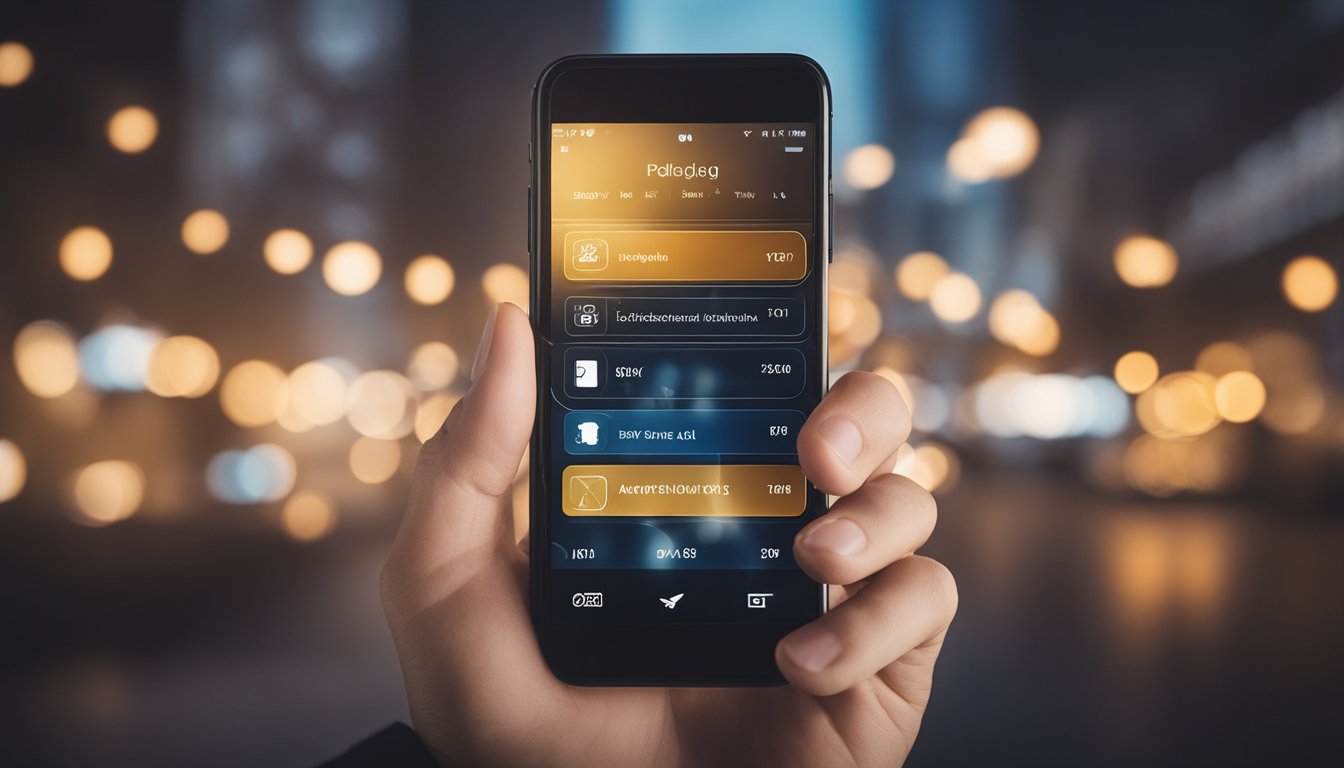Optimizing Your Mobile App for Machine Learning and AI
Creating a mobile app that is optimized for machine learning and artificial intelligence (AI) is becoming increasingly important as AI continues to transform the way we interact with technology. AI-powered mobile apps can help businesses and individuals make better decisions, automate tasks, and improve user experiences. Incorporating AI features into mobile apps can be challenging, but the benefits are worth the effort.

The intersection of AI and mobile app development is an exciting space that is rapidly evolving. AI mobile apps are being used in different industries, including healthcare, finance, and retail, to name a few. The possibilities for AI mobile apps are endless, and developers are constantly exploring new ways to integrate AI into their mobile apps. However, creating an AI mobile app comes with its own set of challenges, such as data privacy and security concerns, as well as the need for specialized skills and expertise.
Key Takeaways
- AI-powered mobile apps can help businesses and individuals make better decisions, automate tasks, and improve user experiences.
- The intersection of AI and mobile app development is a rapidly evolving space with endless possibilities for different industries.
- Although creating an AI mobile app comes with its own set of challenges, the benefits are worth the effort.
The Intersection of AI and Mobile App Development

As AI and machine learning continue to evolve, mobile app development is becoming more intelligent and personalized. The integration of AI and machine learning algorithms into mobile app development has transformed the way developers create, deploy, and maintain mobile applications. In this section, I will discuss the intersection of AI and mobile app development, including the understanding of AI and machine learning, and the role of AI in mobile app development.
Understanding AI and Machine Learning
AI is the ability of a machine or a computer program to perform tasks that typically require human intelligence, such as visual perception, speech recognition, decision-making, and language translation. Machine learning, on the other hand, is a subset of AI that enables machines to learn from data and improve their performance over time without being explicitly programmed.
In mobile app development, AI and machine learning models are used to analyze user data and provide personalized experiences. These models can predict user behavior, recommend content, and automate tasks, making mobile apps more intelligent and efficient. For example, AI algorithms can analyze user behavior to recommend products or services that are more relevant to their interests.
The Role of AI in Mobile App Development
AI plays a significant role in mobile app development, and its impact is seen in enhanced user experiences, improved functionality, and bolstered security measures. AI algorithms can be used to develop chatbots and virtual assistants that can help users with their queries. They can also be used to analyze user data to provide personalized content and recommendations.
AI app development is the process of creating mobile apps that use AI to enhance the user experience. These apps typically use machine learning algorithms to provide personalized recommendations, predictive analytics, natural language processing, and other helpful features. AI app development is becoming more popular as businesses look for ways to improve customer engagement and satisfaction.
In conclusion, the integration of AI and machine learning into mobile app development has revolutionized the way mobile apps are created and used. The use of AI algorithms and machine learning models has made mobile apps more intelligent, efficient, and personalized. As AI and machine learning continue to evolve, we can expect to see more innovative and intelligent mobile applications in the future.
Incorporating AI Features into Mobile Apps

As AI and machine learning continue to evolve, they are becoming increasingly important in mobile app development. By integrating AI features into mobile apps, developers can create more personalized and intelligent experiences for users. Here are some ways to incorporate AI into mobile apps:
AI-Powered Chatbots and Voice Assistants
One of the most popular uses of AI in mobile apps is through chatbots and voice assistants. These AI-powered features can help users navigate the app, answer questions, and provide personalized recommendations. For example, chatbots can help users book appointments, order food, or even provide mental health support. Voice assistants, on the other hand, can help users control their smart home devices, play music, or set reminders.
There are many AI-powered chatbot and voice assistant platforms available, including ChatGPT and StarryAI. These platforms use natural language processing (NLP) and machine learning algorithms to understand user queries and provide relevant responses. By incorporating chatbots and voice assistants into mobile apps, developers can create a more intuitive and user-friendly experience.
Image Recognition and Personalization
Another way to incorporate AI into mobile apps is through image recognition and personalization. By analyzing user data and preferences, AI algorithms can provide personalized recommendations and content. For example, an e-commerce app can use image recognition to suggest products that match a user's style or preferences. Similarly, a social media app can use image recognition to suggest relevant content based on a user's interests.
There are many AI-powered image recognition and personalization platforms available, including Google Cloud Vision and Amazon Rekognition. These platforms use deep learning algorithms to analyze images and provide relevant recommendations. By incorporating image recognition and personalization into mobile apps, developers can create a more engaging and relevant experience for users.
Real-Time Data Analysis and Automation
Finally, AI can be used to analyze real-time data and automate tasks in mobile apps. For example, an app can use AI algorithms to analyze user behavior and provide personalized recommendations in real-time. Similarly, an app can use automation to perform tasks such as scheduling appointments or sending notifications.
There are many AI-powered data analysis and automation platforms available, including IBM Watson and Microsoft Azure. These platforms use machine learning algorithms to analyze data and automate tasks. By incorporating real-time data analysis and automation into mobile apps, developers can create a more efficient and personalized experience for users.
In conclusion, incorporating AI features into mobile apps can help developers create more personalized and intelligent experiences for users. By using AI-powered chatbots and voice assistants, image recognition and personalization, and real-time data analysis and automation, developers can create a more engaging and relevant experience for users.
AI Mobile Apps in Different Industries

As AI continues to evolve, it is becoming increasingly integrated into mobile apps across a range of industries. From healthcare to education to entertainment, AI is transforming the way we interact with mobile technology.
AI in Healthcare and Fitness Apps
Healthcare and fitness apps are using AI to provide users with personalized and accurate information. With AI-based fitness apps, users can receive tailored workout plans and nutrition advice based on their individual needs. AI is also being used in healthcare apps to help diagnose and treat medical conditions. For example, AI-powered apps can analyze symptoms and provide users with a list of potential diagnoses.
AI in Education and Elearning Apps
AI is revolutionizing the way we learn. Language learning app Duolingo, for example, uses AI to personalize the learning experience for each user. The app uses machine learning algorithms to analyze user data and create customized lesson plans. AI is also being used in elearning apps to provide students with instant feedback on their work and to identify areas where they may need extra help.
AI in Entertainment and Lifestyle Apps
AI is transforming the way we consume entertainment and engage with lifestyle apps. AI-based news apps, for example, can analyze user data to provide personalized news recommendations. Lifestyle apps are also using AI to provide users with personalized recommendations for everything from restaurants to fashion. AI is also being used in entertainment apps to create personalized playlists and recommendations based on user preferences.
In conclusion, AI is playing an increasingly important role in mobile app development across a range of industries. From healthcare to education to entertainment, AI is transforming the way we interact with mobile technology, providing users with personalized and accurate information.
Challenges and Future Trends in AI Mobile App Development

As the use of machine learning and artificial intelligence (AI) continues to grow, mobile app developers are faced with new challenges and opportunities. In this section, I will discuss some of the key challenges and future trends in AI mobile app development.
Data Security and Privacy
One of the biggest challenges in AI mobile app development is ensuring data security and privacy. With the increasing amount of personal data being collected, it is important to ensure that this data is protected from unauthorized access and use. Developers need to implement strong security measures, such as encryption and two-factor authentication, to keep user data safe.
The Role of Big Tech Companies
Big tech companies like Google, Amazon, and Bing are playing a major role in the development of AI mobile apps. These companies have the resources and expertise to develop cutting-edge AI technologies, and they are investing heavily in AI research and development. However, their dominance in the market also raises concerns about competition and potential monopolies.
Emerging Trends and Innovations
There are several emerging trends and innovations in AI mobile app development that are worth watching. For example, the use of deep learning and neural networks is becoming increasingly popular, allowing apps to learn and adapt to user behavior. Another trend is the use of non-fungible tokens (NFTs) to create unique digital assets that can be used in mobile apps.
Other innovations include the use of drones and biometrics, as well as the integration of AI with the Internet of Things (IoT). Cloud-based AI is also becoming more common, allowing apps to access powerful AI capabilities without the need for expensive hardware.
In conclusion, AI mobile app development is a rapidly evolving field that presents both challenges and opportunities. Developers must be aware of the latest trends and innovations, while also ensuring that data security and privacy are a top priority. As AI continues to advance, we can expect to see even more exciting developments in the world of mobile app development.
Frequently Asked Questions

How can machine learning models be evaluated after training?
There are several methods to evaluate machine learning models after training. One common method is to use a test dataset to measure the accuracy of the model. Another method is to use cross-validation, which involves splitting the dataset into multiple subsets and training the model on each subset while testing on the remaining data. Other evaluation metrics may include precision, recall, and F1 score.
What are the best AI tools for mobile app development?
There are several AI tools that can be used for mobile app development, including TensorFlow, Keras, PyTorch, and Caffe. These tools provide libraries and frameworks for building and training machine learning models. Other tools may include natural language processing (NLP) libraries, computer vision libraries, and speech recognition libraries.
How can AI and machine learning be implemented into mobile apps?
AI and machine learning can be implemented into mobile apps by integrating pre-trained models or building custom models. Pre-trained models can be used for tasks such as image recognition, speech recognition, and natural language processing. Custom models can be built using machine learning frameworks and libraries. In addition, AI and machine learning can be used to enhance user experience by providing personalized recommendations and predictive features.
What are some examples of machine learning apps?
There are many examples of machine learning apps, including language translation apps, virtual assistants, and image recognition apps. Other examples may include health and fitness apps that use machine learning to track and analyze user data, and finance apps that use machine learning to provide personalized investment recommendations.
How is AI and machine learning used to test mobile applications?
AI and machine learning can be used to test mobile applications by automating the testing process and generating test cases. This can help to improve the efficiency and accuracy of testing, as well as reduce the time and cost associated with manual testing. In addition, AI and machine learning can be used to detect and diagnose issues in real-time, allowing developers to quickly identify and fix bugs.
Can AI design a mobile app?
While AI can be used to assist in the design process, it is not yet capable of designing a mobile app on its own. However, AI can be used to generate design recommendations based on user data and preferences, as well as automate certain design tasks such as layout and color selection. Ultimately, the design of a mobile app still requires human input and creativity.

We are committed to delivering a new level of automation that will help organizations save time, money, and staffing resources.
 WRITE FOR US!
WRITE FOR US!
